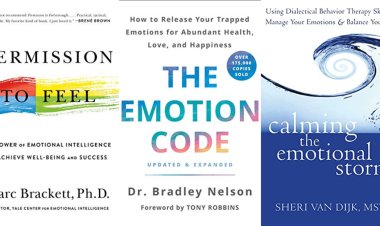Benefits of Therapy
Therapy can be a lot of work, but your effort will pay off in the end. Mental health therapy is rewarding because you’re bound to see positive outcomes any time you focus on yourself to better your life.

Therapy can be challenging, but the benefits are worth the effort. When you put effort into improving yourself through mental health therapy, you're bound to notice results. Do you ever ask yourself, "Do I need therapy?"?
Here, we'll explore the many positive outcomes that can result from engaging in therapy or counseling. Putting in effort and witnessing positive results is the most rewarding feeling.
Keep reading to find out some of the best reasons to visit a therapist and the ways in which therapy may help you.
Top 10 Benefits of Seeing a Therapist
Talk therapy, or psychotherapy, has numerous useful applications. After six months of mental health treatment, about 75% of patients who start psychotherapy or talking therapy report some benefits, according to research. If you want to decide whether or not therapy is good for you, knowing what kinds of positive outcomes are available can be helpful. Cognitive behavioral therapy and dialectical behavior therapy are two examples of talk therapies that can help people overcome their problems, but these approaches aren't the only ones available. Dialectical behavior therapy, for instance, is commonly preferred over cognitive behavioral therapy for the treatment of borderline personality disorder. Read on to find out why psychotherapy and talking treatments are so helpful.
1. Improve communication skills
You can improve your ability to communicate in a healthy, productive, and positive way through therapy. Your ability to communicate well will serve you well in almost every aspect of your life. If you avoid conflict, lose your temper easily, or freeze up while having an open discussion, counseling can help you develop the skills you need to feel at ease in all of your social interactions.
2. Learn to resolve conflict
You may benefit from counselling if you have a hard time resolving conflicts on your own. With the help of a mental health professional, you can learn to assert yourself in relationships, express your demands clearly, and negotiate for what you want. Learning to effectively resolve conflicts is a crucial life skill that will help you deal with a wide range of challenges.
3. Treat mental health conditions
Many people find relief from their symptoms of anxiety, sadness, OCD, and other mental health issues through therapy. Putting your mental health first and seeking treatment is an admirable and courageous act.
"One of the most beautiful and useful components of working with a therapist is getting to the base of what's causing a mental health illness, which can be really liberating. Changing our behavior for the long haul requires addressing the underlying beliefs and wounds that motivate it. As the saying goes, "putting a bandaid on a major wound might stop the bleeding in the moment, but it won't help in the long term if we don't get to the crux of the issue."
4. Increased self awareness
A person's emotional and mental health, their life experiences, and their overall conduct can all be better understood through therapy. If you take the time to think on your own ideas, feelings, and habits, you may be able to see how they are sabotaging your efforts to improve your health and happiness.
5. Collaborate with your family
Family therapy can be highly helpful in resolving sensitive issues within a family. A therapist can help families get through tough times like trauma, loss, and addiction by working with each member individually and as a unit in therapy. You can expect to see progress in your family connections whether you choose individual treatment or family therapy.
6. Develop coping skills and strategies
Family therapy can be highly helpful in resolving sensitive issues within a family. A therapist can aid in healing broken relationships by providing services for both individuals and families.If you want to overcome a challenge, it helps to have a game plan. Counseling for mental health issues might help you learn effective methods of managing your condition. You can overcome obstacles in your life with the help of these coping strategies. Developing the ability to view challenges as opportunities for growth can allow you to succeed in the face of almost any adversity.
and learn to talk to one another in a way that helps you get through tough times like loss, illness, or addiction. You can expect to see progress in your family connections whether you choose individual treatment or family therapy.

7. Learn to find healthy, positive support
Having someone there to help you through difficult times might alter everything. Therapy could be useful if you have trouble building healthy connections, have trouble reaching out for assistance, or have a propensity to draw unhealthy people into your life. You can work on altering the ways of thinking and behaving that are likely adding to your current set of problems during mental health treatment.
8. Stronger relationships
Improved communication, appropriate limits, and the ability to resolve disagreements are just some of the skills that therapy can teach. Better understanding of one's own communication and behavioral patterns is one outcome of therapy, which can also improve one's connections with loved ones.
9. Change negative emotions and thought patterns
What we focus on expands. Therapy might assist if your life is being negatively affected by persistent unpleasant feelings and ideas. You'll start by realizing you're doing it, and then you'll start retraining your brain to think and act in a new way. Through counseling, you can work through any issue, from overcoming your phobias to repairing broken relationships. The process is effective because it leads to a shift in destructive mental habits.
One of the greatest advantages of psychotherapy in my experience is that it helps people start living lives that are truer to who they are. This can be achieved through therapy, which aids in the identification of limiting beliefs held subconsciously, their exploration and integration, and the subsequent implementation of strategies to replace dysfunctional behaviors with more helpful ones.
10. Alter negative behaviors
Just as our thoughts can occasionally be harmful, so can our actions. They can derail our efforts to maintain an upbeat and healthy way of life. Perhaps you have an addiction problem or a history of self-destructive behavior. If your actions are negatively affecting your life and the people around you, therapy may help you make some changes.












